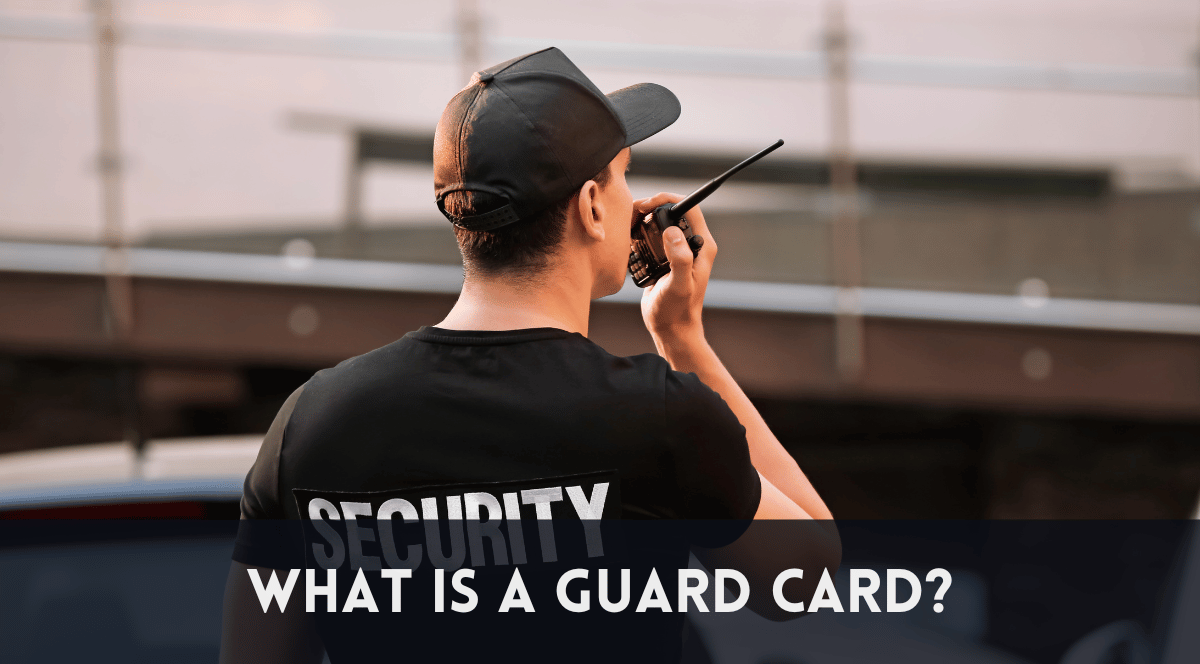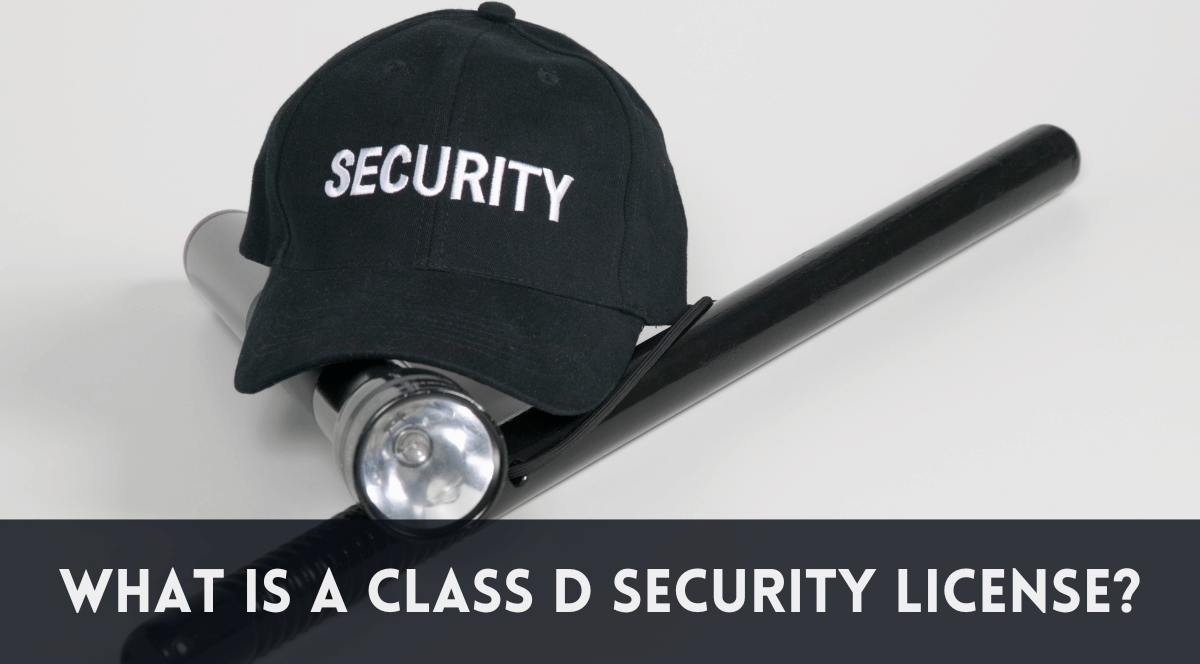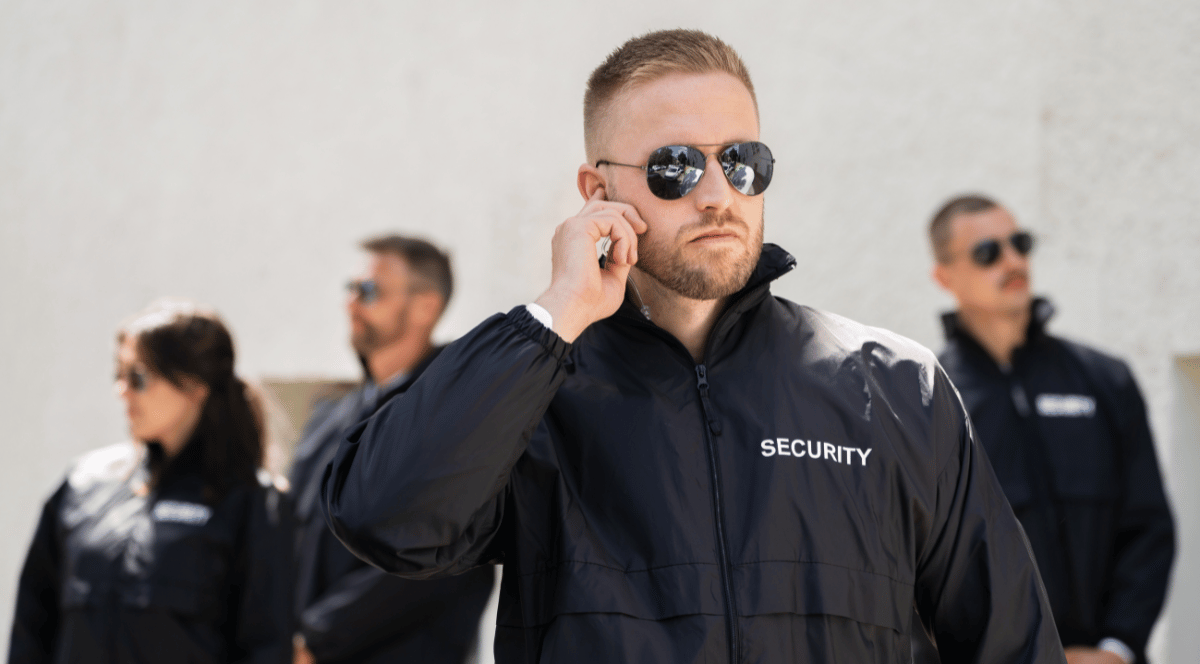 What Is a Guard Card? Facts Every Aspiring Security Officer Must Know
What Is a Guard Card? Facts Every Aspiring Security Officer Must Know
If you’re considering a career in the private security industry, you might have asked yourself, what is a guard card? Simply put, it’s a mandatory certification that allows individuals to work legally as security officers in many U.S. states. This credential confirms that the holder has undergone specific training, passed a background check, and meets all legal requirements set by their respective state.
In this blog, Oatridge Security Group (OSG) breaks down everything you need to know about guard cards, including how to obtain one, training requirements, costs, and how we help streamline guard card compliance for security teams. Understanding what is a guard card is the first step toward building a career in security.
Why Guard Cards Matter in the Security Industry
Guard cards serve as essential documentation of readiness, legal eligibility, and professional standards in private security. With rising demand for highly trained security officers, the guard card ensures that the people tasked with protecting people and property are up to the challenge.
Professionalism and Legal Compliance
Guard cards formalize the qualifications necessary to work as a security officer, confirming a base level of professionalism. They assure employers and clients that an individual has not only undergone the required training but is also legally authorized to perform their duties within state-specific guidelines.
Proof of Training and Background Clearance
A valid guard card confirms that the holder has completed required guard training and passed a criminal background check. This ensures that only those who meet specific legal and ethical standards are placed in trusted security guard roles.
Role in Setting Industry Standards
Standardized licensing through guard cards helps create consistency in how security professionals are trained and evaluated. This ultimately benefits the public by promoting higher service quality, especially in high-risk or high-profile environments.
Enhancing Trust and Accountability
Security guards with proper licensure inspire confidence in both clients and the public. In critical moments, it makes a significant difference to know the responding officer has been trained, screened, and licensed to handle various security situations.
How to Get a Guard Card: General Step-by-Step Process
While requirements may vary from state to state, the core process to obtain a guard card generally includes several critical steps designed to vet and prepare candidates.
Minimum Eligibility Requirements
Before pursuing licensure, an applicant must:
- Be at least 18 years old
- Have valid identification
- Be a legal U.S. resident or citizen
- Possess a clean or reviewable criminal history
These prerequisites establish a baseline of legal and personal readiness for becoming a licensed security guard.
Training Completion
Candidates must complete a state-approved guard card training course. These courses vary in length and depth but typically cover core competencies such as:
- Public interaction
- Observation and reporting
- Legal use of force
- Emergency procedures
In many states, the training must be completed before applying for licensure. Others may allow provisional work with ongoing card training. Understanding what is a guard card also includes recognizing its training value.
Application Submission
Applicants must submit their documentation to the relevant state licensing agency. This often includes:
- Completed application form
- Proof of guard training
- Government-issued identification
- Licensing fee payment
Background Check and Fingerprinting
Applicants must undergo a fingerprint-based background check. This process examines criminal records to ensure the applicant has no disqualifying offenses that could impact their security guard certification.
Licensing Fees and Processing
The costs associated with getting a guard card include training fees, fingerprinting, and application processing. Once all documentation is verified and the background check is cleared, the guard card is issued. Knowing what is a guard card means knowing these procedural steps in detail.
Guard Card Requirements by State
Each state maintains unique regulations for security guard licensing. Understanding the regional differences is essential for compliance and preparedness.
California
- Issuing Authority: Bureau of Security and Investigative Services (BSIS)
- Initial Training: 8 hours before being placed on duty
- Additional Training: 32 hours within the first six months of employment
- Firearm Endorsement: Requires an additional 8-hour course and shooting range qualification
California guard card applicants must comply with BSIS requirements to receive certification. The state takes security certifications seriously, and guard card classes must be state-approved. Anyone asking what is a guard card in California will find this path clearly defined.
Florida
- Issuing Authority: Department of Agriculture and Consumer Services
- License Type: Class “D” for unarmed guards; Class “G” for armed
- Training: 40-hour course for Class D; 28-hour firearms course for Class G
- Background Checks: Required for both license types
The Florida guard card system ensures that every security officer is properly licensed and understands their scope of work. Firearms training is required separately for guards aiming to carry weapons.
Texas
- Issuing Authority: Texas Department of Public Safety
- License Levels: Level 2 (Unarmed), Level 3 (Commissioned), Level 4 (Personal Protection)
- Training: Minimum 6 hours for Level 2; over 40 hours for Level 3
- Firearm Certification: Integrated into Level 3 training
Texas offers flexible licensing paths depending on the duties of the guard. Level 3 requires additional guard certification and hands-on safety training to prepare officers for higher-risk roles.
| State | License Type | Training Hours | Firearm Option | Renewal Period |
|---|---|---|---|---|
| California | Guard Card (BSIS) | 40 total | Yes (Separate Course) | Every 2 Years |
| Florida | Class D / Class G | 40 / 28 | Yes (Class G) | Every 2 Years |
| Texas | Level 2 / Level 3 | 6 / 40+ | Yes (Level 3) | Every 2 Years |
Training Requirements for a Guard Card
Training is a central pillar of what makes the guard card valuable. It equips security guards with the practical and legal tools they need to carry out their responsibilities. Understanding what is a guard card also involves knowing what training it requires.
Core Training Topics
- Legal Responsibilities: Understanding arrest powers, detention rights, and liabilities
- Emergency Response: CPR, fire protocols, evacuation, first aid
- Incident Reporting: Methods for documenting events clearly and accurately
- Conflict Management: Strategies for verbal de-escalation and public interaction
- Professional Conduct: Emphasis on ethics, confidentiality, and proper behavior
Additional Certifications
In some states or for specific roles, additional endorsements may be required:
- Firearms handling for armed security guards
- Baton and pepper spray certification
- First Aid and CPR renewal courses
Cost of Obtaining a Guard Card
Financial planning is part of becoming a licensed security guard. The total investment depends on your location, career goals, and level of certification.
Typical Cost Range
- Training Course: $75 to $300 depending on hours and location
- Application and Fingerprinting: $50 to $100
- Additional Certifications: $100 to $200 (for firearms, CPR, etc.)
- Estimated Total Cost: $100 to $500+ depending on required credentials
Variables That Influence Cost
- State-specific training requirements
- Guard card classes and providers
- Certification add-ons such as CPR or baton use
Renewal and Ongoing Maintenance of Guard Cards
A guard card is not permanent. Ongoing compliance ensures security guards remain informed and capable.
Renewal Frequency
Most states require license renewal every two years. Renewal involves:
- Paying a fee
- Completing refresher guard training
- Verifying current employment information
Ongoing Training Requirements
States may mandate continued education to keep security certifications active:
- Florida: 4 hours of ongoing training
- Virginia: Annual recertification
- California: Complete full training hours within six months
Skills and Qualities Needed to Earn and Maintain a Guard Card
Security officer roles demand a variety of competencies beyond technical knowledge.
- Attention to Detail: Crucial for surveillance and identifying threats
- Situational Awareness: Spotting unusual or unsafe behavior
- Physical Fitness: Supports readiness and mobility on duty
- Communication Skills: Clear and respectful interaction with the public
- Reliability and Discipline: Hallmarks of responsible security guards
Continuing Education for Security Guards
Security guards must stay updated on best practices and evolving safety protocols. Part of knowing what is a guard card means understanding the importance of continued learning.
Advanced Areas of Study
- Behavioral Observation: Spotting suspicious or erratic behavior
- Crowd Control Tactics: Used at events or high-traffic locations
- Surveillance Equipment Use: Cameras, access control, alarms
- Regulatory Changes: Updates to licensing and safety laws
How Oatridge Security Group Supports Guard Card Compliance
At Oatridge Security Group (OSG), we understand the importance of staying compliant with security guard certification requirements. We make compliance seamless through technology and training oversight.
Integrated Management of Credentials
Our system keeps guard card status, security certifications, and training requirements organized and accessible.
Proactive Alerts and Monitoring
Officers and managers receive automatic reminders for training deadlines, renewals, and updates. This prevents lapses in certification.
Field Tools for Accountability
Our mobile platform allows guards to track tasks, complete guided patrols, and stay in line with card training requirements.
Training Oversight
We monitor certification completion, track hours, and confirm compliance for every security guard under our care.
Why Staying Guard Card Compliant Protects Your Clients, Officers, and Business
Compliance provides much more than legal coverage. It protects people, property, and reputations. It also helps everyone understand what is a guard card in the broader context of public safety.
- Prevents Regulatory Violations: Avoids fines and shutdowns
- Enhances Officer Performance: Proper training improves decision-making
- Builds Client Confidence: Shows commitment to safety and professionalism
- Mitigates Risk: Reduces liability from negligence or untrained staff
Contact Oatridge Security Group
Oatridge Security Group (OSG) is a HUBZone certified business based in Tacoma, Washington. We specialize in delivering cleared protective services that meet and exceed the expectations of both government and commercial clients.
With over 20 years of experience and senior leadership bringing more than 100 years of combined industry expertise, we are proud to be recognized as a standard-setter in security services across the Pacific Northwest and beyond.
Whether you need armed or unarmed security guards, patrol services, access control, or security consulting, OSG is always ready. We operate 24/7/365 to ensure immediate response and comprehensive coverage.
Contact Us Today: (253) 461-1622

 What Is a Class D Security License?
What Is a Class D Security License? Get Started With Your Security Career Today
Get Started With Your Security Career Today
